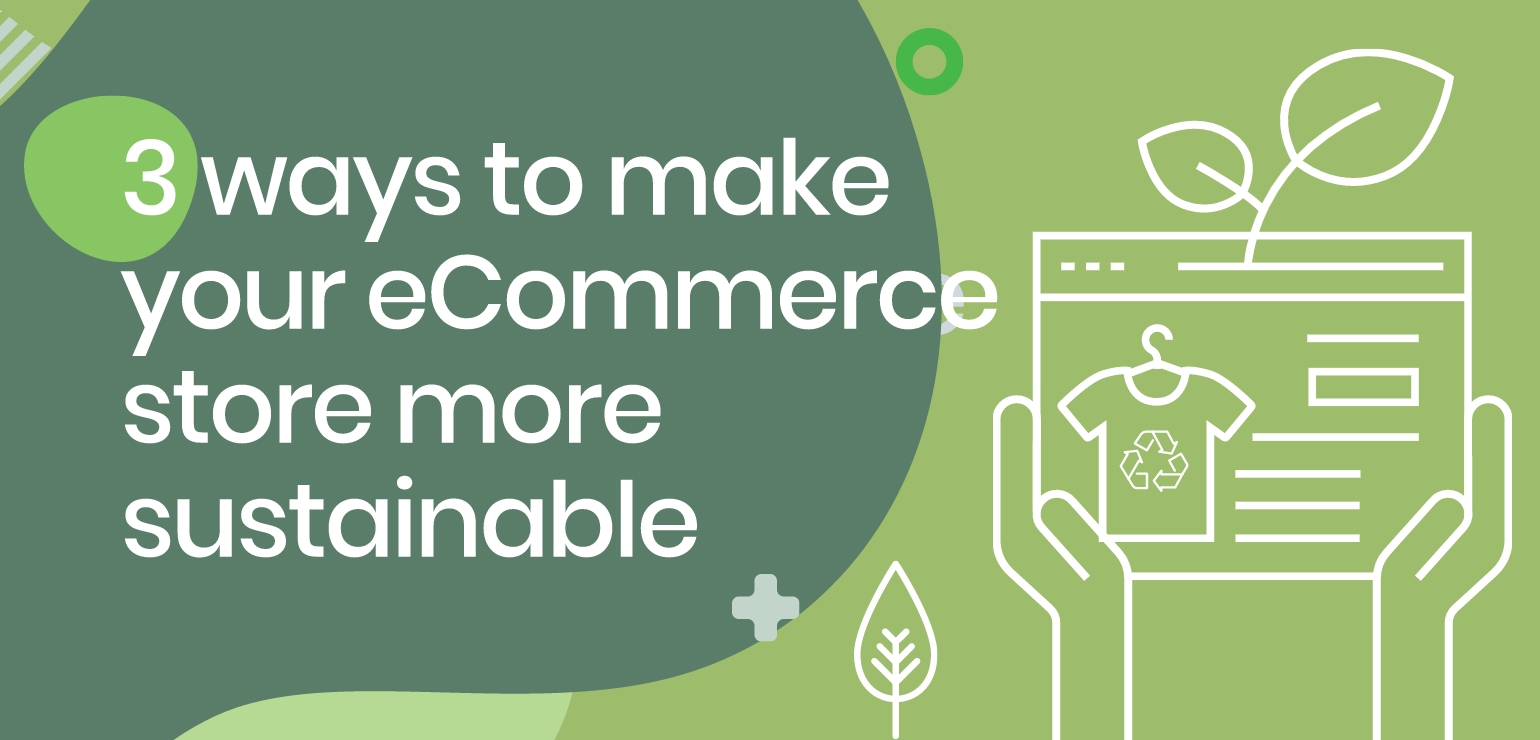Planning for eCommerce business happiness

Article topics
- Fail to plan, plan to fail
- Creating your business continuity plan
- Webstore uptime
- Unbroken supply chains
- Inventory protection
- On-time order fulfilment
- Data security
- Covid-19
- Customer communications
- Final thought
The health of a business, the happiness of the people that constitute it, can be quantified in different ways. One of the main components for business happiness is resilience. It’s about your business being in the best shape possible for success. It’s about good planning and effective management. A resilient business will help keep your customers and your employees happy.
Fail to plan, plan to fail
Planning for unforeseen circumstances will make your business more resilient.
A business continuity plan details the action that will be taken to help keep your business up and running—or restore it quickly—in the event of a disaster, whether it’s a physical challenge such as a utility outage, a severe weather event, the ongoing Covid crisis, or a security breach, such as a malware or ransomware attack.
Failing to plan for the unexpected means risking your webstore being adversely affected, or even going down. Unplanned disruptions could impact your ability to fulfil orders or keep your customer data safe. And without a continuity plan, recovering from such events could be much slower. Unforeseen disasters could potentially impact both your revenue and your brand reputation. Nothing is ever certain. You may have never encountered a major disruption to your business. But the chances are that you will experience significant operational challenges at some point. Having a comprehensive plan in place will give you a competitive edge and help mitigate financial risk. Once everyone in your business is fully comfortable with and trained on implementing your plan, they are happier, safe in the knowledge that if disaster strikes, your business has the resilience to bounce back.
Creating your business continuity plan
Before creating your continuity plan you should first carry out a business impact assessment (BIA). Your BIA highlights the impact potential disruptions could have in different areas of your business, including disrupted deliveries, slow sales, lost inventory, increased costs etc.
Your BIA will help to determine how unforeseen events might impact your business. A freak snowstorm that’s clear in 24 hours might have minimal impact on order fulfilment. However, a flood that knocks out power to your warehouse for a week could cause orders to back up. Your BIA would alert you to the need for contingency plans for power outages.
Once you have completed your BIA you will be ready to create your eCommerce business continuity plan. The areas to focus on are:

Webstore uptime
The main threats to your webstore are spikes in demand and DDOS (distributed denial of service) attack. To cope with increased demand, ensure that your webstore is highly scalable and has the bandwidth to cope with surges in consumer traffic. And tight security is vital to repel hackers and DDOS attacks. Remember, if your webstore goes down, then your business is closed.
Using multiple database infrastructure will increase scalability and the stability of your webstore. By having multiple virtual databases across data centres the load is spread for continuous uptime. However, for some eCommerce businesses this can be a costly solution.
Switching to a software as a service (SaaS) webstore can be a more economical way for eCommerce businesses to gain enterprise-level scalability and webstore stability. SaaS means that your webstore is cloud hosted by a developer with no onsite servers required, and access to your webstore can be from anywhere with an internet connection.
Unbroken supply chains
If a critical element in your supply chain fails, then your business could stall. This could be caused by many different factors, such as a key supplier going out of business, a natural disaster in a supplier’s country, new legislation in other territories, a shortage of raw materials, the list goes on.
These scenarios can impact your ability to trade properly, if product becomes scares or the cost price goes up. Planning for such events and even pre-empting them will help keep your business resilient when your competitors might be floundering because they were caught unaware.

Inventory protection
Planning to protect your inventory is vital. For example, vermin might damage or taint your items on the shelves, thieves could break in as steal your products, or a flood or freezing temperatures might damage stock. It of course depends what kind of product that you sell—inventory protection planning is particularly important for perishable, fragile and high value goods.
The same planning should apply whether you have your own warehouse of you use a third party (3PL) to store and handle your inventory.
On-time order fulfilment
On-time order fulfilment is vital for customer happiness. Getting your products to your customers quickly and safely will help improve customer retention and inspire loyalty. Adverse weather conditions hamper delivery efforts, causing orders to arrive late, either through power outages at one of your carrier’s warehouses, or heavy snow or flooding on the roads.
Higher volume of deliveries and short staffing at your carrier can also cause the same problems, as seen recently with the Covid crisis.
Best practice to help mitigate these types of fulfilment issues is to build in some flexibility by contracting with several different carriers, and ensuring that the 3PL services that you use have their own continuity plan.
Data security
Ensuring that your company and customer data is secure is vital. A data breach can result in loss of revenue, damage to your business’s reputation and weakened brand equity. Planning for defence against potential data breaches and planning for updates and changes to compliance legislation will help keep your business healthy.
If your business becomes infected with malware or ransomware you may become locked out of all your important data and systems. Regular backups of your webstore data can help keep this from being a critical blow to your business.
Compliance is the ground level of your security commitment for financial transactions. Your business is required to meet certain standards to be considered ‘in compliance’ and fines can be imposed on your business for non-compliance.

Covid-19
With the unpredictability of the ongoing pandemic affecting businesses across the UK, it can seem impossible to plan for the short term, let alone for the longer view. As local lockdowns are imposed, some eCommerce businesses are jammed between a rock and a hard place.
On one hand eCommerce retailers can continue to trade online, but with staff locked down and precautions to reduce Covid transmission in place, delivery times will be longer, with some products being unavailable or restricted.
Never the less, online sales have during the Covid crisis remained on an upward trajectory having shown accelerated growth. This is cause for some celebration for eCommerce businesses. For those brick-and-mortar retailers that don’t have a webstore as well as their physical store, the outlook is for tough times ahead.
A solid plan for brick-and-mortar retailers to adapt to Covid is to begin trading online and introduce another revenue stream to the business and be less reliant on customer footfall.
Customer communications
In the event of your business having to shut down or slow its operation then it’s important to have a clear and quickly implementable customer communication plan. If your customers are kept in the dark, they will very quickly become frustrated and you risk losing them.
During the Covid crisis many eCommerce businesses have been keeping their customers up to date about what’s happening—with varying degrees of success. Remember, a crisis can be an opportunity for your business to shine. Outstanding customer service and communications in a crisis can show your business as super professional and proactive, which can help solidify customer loyalty.
Regularly communicating with your customers about security issues, such as phishing and password integrity not only help to improve security, but also demonstrates to your customers that your business plans for its security provision and takes their data security seriously.
88% of users are less likely to return to a website after a bad user experience.
Final thought
Having solid, executable contingency plans for extraordinary events is vital for keeping your eCommerce business up and running when disaster strikes. Doing this will help ensure continuity of service for your customers and peace of mind for you and for your workforce.
Minimising the risk of disruption and eliminating nasty surprises for your business helps ensure greater ongoing success and makes everyone a little bit happier.
Is your webstore as resilient as it should be? If you would like to know more about improving your webstore’s scalability, direct customer communications or eCommerce security, then get in touch today for a chat with one of our eCommerce experts.


 Back
Back
